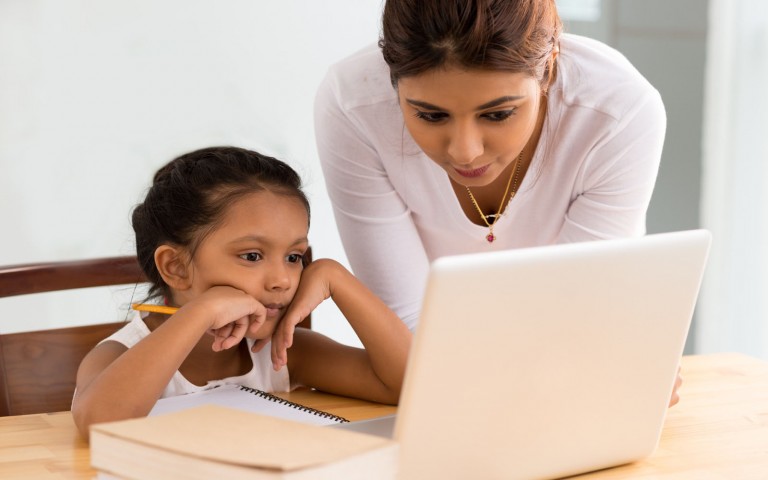
Photo: Dragonimages | Dreamstime.com
Unless someone printed this article out for you and you’re reading it on paper, you are one of those who have an astounding amount of information accessible at their fingertips. News, information, “How to” videos, reviews, advice and entertainment are all just a click away thanks to the Internet. Most adults learn, sometimes through regrettable experience, that not all of that information online is reliable. But what does this mean for our children? How can they tell what is fact, what is heavily biased and what is plain misinformation?
Psychotherapist and author Linda Perlman Gordon told NewsOK, “Even adults have trouble telling what’s true and what’s not online. A whole universe of information is coming at kids through the internet and much of it is not vetted. We have a responsibility as parents to make sure kids know what’s true and what’s not.”
Most school-going kids now learn how to search the web as part of class projects that require them to gather information and pictures. But while there’s a wealth of data out there, you shouldn’t presume that geography and science questions are the only topics they are entering into search engines. Religion, sexuality, politics and health are also topics that children wonder about. This is not about pornography or violence or the other extremely gruesome stuff that’s out on the Internet. Although that type of content is also of concern, content controls and Internet filters can help block access to most of it.
What content filters do not block are bad or incorrect information or opinion. Just like adults, children should ask some critical questions about the information they see online. However, they will need your help in answering them. Some basic questions are:
- Who or what is behind the site?
- What is their purpose in providing the information?
- What is the authority or evidence behind the information?
- How recent is the information?
A few other things to keep in mind are:
- If your child is accessing the Internet on a computer, place it in a central location where you can keep watch on their activities. If the activity will be on a mobile device, ask your child to stay in the room with you.
- If you consider some sites to be trustworthy and reliable, share them with your children and explain why you trust them.
- As children reach their teens they will want and need their privacy, but before then it is a good idea to be with your child while she is on the computer.
Of course, you can always trust FamiLife for factual information on parenting and health. Share your thoughts below. Please like FamiLife’s page on Facebook so that you get all our articles and others may find us.
